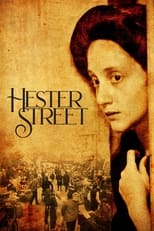CinemaSerf
Jul 28, 2024
7/10
There are a couple of really quite poignant performances here from "Jake" (Steven Keats) and his wife "Gitl" (Carol Kane) as together with their young son they try to make a new life in New York after fleeing from Russia. He had arrived some time earlier and had already become exposed to some of the more libertarian aspects of American society by the time his family arrived and though he manages to adopt the ways of their new society more readily, she does not. Indeed, his enthusiasm to fit in, and to have his son - now called "Joey" to do likewise begins to pit him against his strongly Jewish community and against a wife with whom he no longer connects. It's essentially a film about integration and of profound clashes of culture. The old having to give way to the new. Sometimes subtly, sometimes more brutally - and with "Gitl" being a woman, this struggle was only exacerbated by her social position as someone largely dependant on his husband for support. As this position becomes increasingly untenable for all, the story becomes alive with a tension that's born out of something nobody had had much of previously - opportunity. The drama is well delivered by both Keats and Kane illustrating just how easily the glue of something strong can dissolve when something intangibly tantalising comes along. In this case, "Mamie" (Dorrie Kavanaugh) epitomises the lively and bright alternative to the dreariness of his daily life. It's an observation, really - an episode in their lives that at times hits home but at others is akin to a Chaplin film mixed with a few episodes of "Upstairs Downstairs" - only with out the riches or glamour. It's hard to see it working as a film for the cinema, but it is a characterful study worth a watch.
